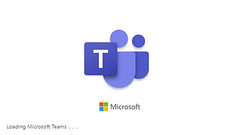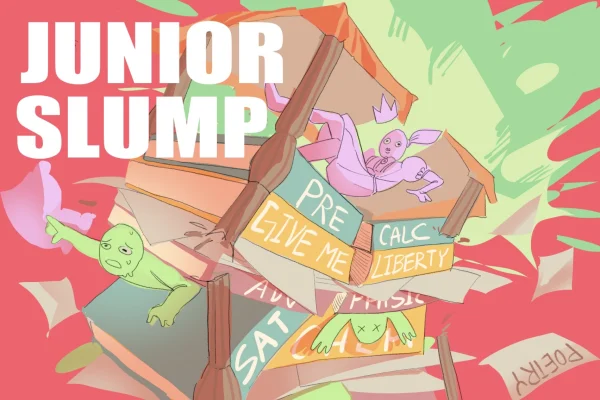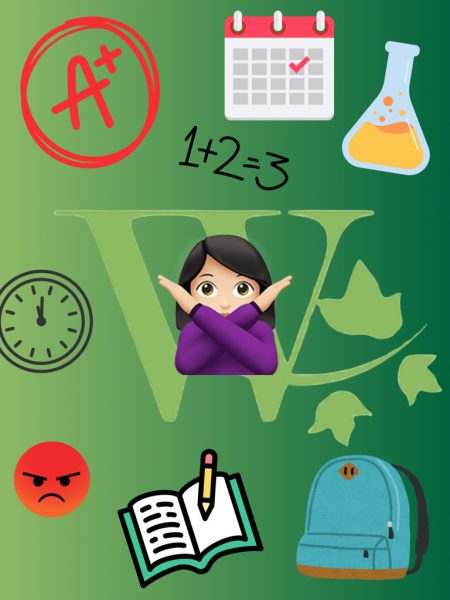Five Not-Depressing Ways To React When A Teacher Asks, “How Are You?”

Keep these handy tips at the ready for your next TEAMS call.
Approximately thrice a day some hapless, well-meaning adult tries to make a polite inquiry about the general mood of a classroom. Without fail, all of you turn it into a self-perpetuating sadness bonanza faster than crows flock to carrion. Here are five cool new approaches that aren’t “there’s too much homework” or “the country is a shambles,” so you sad, sad people can regain a bare modicum of dignity.
The Doggy Diversion
Everybody likes to see a stranger’s dog over Zoom. Grab your confused canine pal, thrust them in front of the webcam, and instantly, the question you were expected to answer is totally forgotten! You don’t have to make a single statement concerning yourself with the whole class lost in “awww”s and attempts to get the dog’s attention it will completely ignore. And who knows—how could it not cheer you up to have a squirming, camera-shy animal doing its best to step on your face? Seriously.
Pros: very effective; can actually be used to avoid any obligation up to and including being served divorce papers after thirty years.
Cons: unsubtle; you need a dog (substituting human family member, photo, other pet e. g. snake, or effigy generally a bad idea).
The “No U”
[Uno Reverse Card]
Table those tables on ‘em and ask the teacher how they’re doing! They won’t expect that minor display of human consideration from you pack of gremlins! Now you’ve thrown them off their rhythm and may entirely avoid further inquiry about your mental state as they expound about what’s going down with their dog’s healthcare timeline!
Pros: polite; you might learn something.
Cons: Your teacher is not doing well and will tell you that, defeating the point of the original maneuver.
The Stepford Smile
It’s been scientifically proven that smiling makes you happier, according to several highly annoying macros we’ve all seen. So why not try faking it until you make it? Respond with something genuine-seeming and positive like “Just absolutely dandy, thank you very much!” and just keep smiling.
Pros: may actually work; time-tested.
Cons: everyone will think that you have been body-snatched; classmates may counter-respond with envious anger and fear.
The Seussical
Jazz up a mundane morning by delivering an overview of your mental state in rhyming verse. Nothing is more expressive than a nifty little metered couplet, like you’re a Shakespearean character concluding a soliloquy. Not a quick enough spit to write your own? Try one of the following broadly useful examples:
“Why are you mad?
When you could be GLAAD?”
- Taylor Swift, on daring to love despite the world
“There’s only two types of people in the world
The ones that entertain, and the ones that observe”
- Britney Spears, on the duality of man
“At grief so deep the tongue must wag in vain
The language of our sense and memory lacks the vocabulary of such pain.”
- Dante Alighieri, on Microsoft Teams
“I see nothing funny
About making money”
- Snoop Dogg, on capitalism’s uncountable toll
Pros: 0.01% chance for Tha Bigg Dogg himself to manifest in your house and grant you a boon.
Cons: there are none.
The Unequivocal Falsehood
Hear me out. Will your teacher act on the information they receive, other than adjusting their emotional state? No. Is lying bad? Only a little bit. Just make something up. Was the best part of your weekend barely managing to keep the tears off your math homework? Try telling people about having a heartwarming yet responsibly distant meetup with your beloved Mee-Maw during which she finally imparted you a family heirloom! Your imagination (and moral malleability) are the limit here. This lie’s whiter than a Republican Christmas party that resulted in 24 COVID cases—and much more harmless.
Pros: easy as heck; allows you to stretch yourself creatively
Cons: “lying” is “bad”; remote chance of getting caught, thereby forcing you to explain that you perpetuated a mistruth for very little reason
Spyglass is not responsible for any consequences incurred by following this advice.

Emerson is a staff writer, occasional columnist, and Westridge senior. Her professional interests include theatre, literature, digital culture, the LGBT...




























![Dr. Zanita Kelly, Director of Lower and Middle School, pictured above, and the rest of Westridge Administration were instrumental to providing Westridge faculty and staff the support they needed after the Eaton fire. "[Teachers] are part of the community," said Dr. Kelly. "Just like our families and students."](https://westridgespyglass.org/wp-content/uploads/2025/03/dr.-kellyyy-1-e1748143600809.png)


























